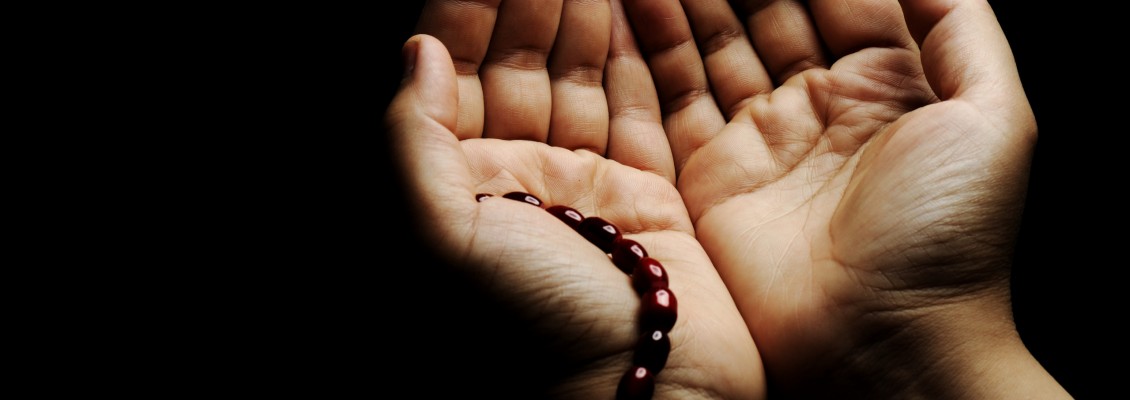
DUA
Prayer is one of the most profound aspects of worship in Islam, serving as a direct connection between a believer and their Creator. In Islam, there are two primary types of prayer: Salah and Dua. While both serve the purpose of communication with Allah, they differ in their structure, conditions, and the way they are performed. Salah is the obligatory form of prayer that every Muslim is required to perform five times a day. It is a structured act of worship, with specific conditions that must be fulfilled for it to be valid such as time, movements and cleanliness. Salah represents the formal "meeting" between a believer and Allah, and it is a central pillar of Islam.
While Salah is a formal act of worship, Dua represents a more personal and intimate form of prayer. The word dua is often translated as “supplication” or “invocation,” but it essentially refers to a servant’s conversation with Allah (Glory be to Him, the Exalted). Unlike Salah, Dua does not have fixed times, conditions, or specific rituals. It can be made at any time, in any place, and in any language. When a believer makes dua, they acknowledge their own limitations and helplessness in front of Allah, humbly seeking His aid with deep feelings of love, reverence, and respect. Through dua, the believer turns to Allah, presenting their needs, concerns, or desires, and implores Him for assistance. Dua is not merely a request for help; it is a profound spiritual act that signifies trust in Allah’s mercy and power. In making dua, a person recognizes their dependence on Allah, realizing that He is the ultimate source of all solutions and that no challenge is too great for Him. It is an act of surrender, where the heart opens to its Creator in full reliance on His wisdom and grace.
Allah has made His presence known to humanity through signs in the universe, within themselves, and through revelation. Human beings, aware of His existence, desire for the connection with the Divine, which is most often expressed through dua. On one level, it is a way for people to acknowledge their needs, weaknesses, and deficiencies, asking Allah for help and guidance. On another level, dua is an act of spiritual elevation, where the believer seeks closeness to Allah, aiming to attain moral and spiritual perfection. In this sense, dua is more than a simple request—it is a bridge that links the created, finite human being with the Infinite Creator, Allah, who is the source of all power and wisdom. For this reason, human has never been away from dua in any period of history.
Muslims regularly turn to Allah in dua, seeking His guidance, mercy, and assistance. Unlike human interactions, where one might need to raise their voice to be heard, in the case of dua, no such effort is required. There is no need to stand on high ground or shout for Allah to hear a supplication, as He is always near and attentive to His servants.This closeness of Allah is beautifully expressed in the Qur'an, where He says:
“When My servants ask you (O Prophet) about Me: I am truly near. I respond to one’s prayer when they call upon Me. So let them respond (with obedience) to Me and believe in Me, perhaps they will be guided (to the Right Way)” [ The Qur’an 2:186].
As can be understood from this verse, Allah is always closest to His servants, and He always hears them and under all circumstances. In addition, the last prophet Muhammad (peace be upon) encouraged Muslims to make dua by saying, ‘‘Make dua to Allah with the sincere belief that it will be accepted...’’ and emphasizing the power of sincere supplication.
People can make dua in all circumstances—whether they are sad, happy, in distress, or experiencing abundance. It is a verbal expression of one's faith and servitude, acknowledging that human beings are constantly in need of Allah’s guidance, support, and mercy. In addition, dua is also an expression of determination and endeavor after the fulfilment of duties and responsibilities.
Prophets also turned to Allah in times of need, offering dua to seek guidance, forgiveness, and help through life's challenges. The first prophet Adam and his wife Eve (pbut) turned to Allah after a mistake they had made and asked for forgiveness with the following words: “...Our Lord! We have wronged ourselves. If You do not forgive us and have mercy on us, we will certainly be losers.” [The Qur’an, 7:23]. This dua reflects the humility and repentance that believers should exhibit when they falter, recognizing their dependence on Allah's mercy.
Prophet Abraham (pbuh), known for his unwavering faith and loyalty to Allah, he supplicated to Allah with this profound prayer: “Our Lord! Make us both (fully) submit to You and from our descendants a nation that will submit to You. Show us our rituals and turn to us in grace. You are truly the Accepter of Repentance, Most Merciful’’ [The Qur’an, 2:128]. His dua to Allah not only demonstrates Abraham’s deep submission to Allah but also his concern for the spiritual wellbeing of his descendants.
Prophet Job, who is a model of patience, called upon Allah for healing after suffering long-term illness, praying: "I have been touched with adversity, and You are the Most Merciful of the merciful" [The Qur’an 21:83]. This shows that even in moments of great hardship, one should maintain faith in Allah’s mercy and seek relief directly from Him. Similarly, Prophet Moses, when tasked with confronting Pharaoh, asked Allah for strength and clarity: “My Lord! Uplift my heart for me, and make my task easy, and remove the impediment from my tongue, so people may understand my speech” [The Qur’an 20:25-28], showing us how believers can seek divine assistance to overcome personal challenges and carry out difficult tasks. Prophet Jesus, too, turned to Allah for provision and a sign of divine mercy when he prayed: “O Allah, our Lord! Send us from heaven a table spread with food as a feast for us—the first and last of us—and as a sign from You. Provide for us! You are indeed the Best Provider” [The Qur’an 5:114].
Through these examples, we see that the prophets, though divinely guided, experienced human challenges such as illness, hardship, and trials. They turned to Allah through dua in every situation—whether for forgiveness, guidance, strength, or provision. Like the prophets, believers today can make dua to Allah in their own words, expressing their needs and desires, or they can use the powerful duas found in the Qur'an and Sunnah. What matters is the sincerity, humility, and belief that Allah hears every supplication, as He is always near, ready to respond to those who call upon Him.

Leave a Comment